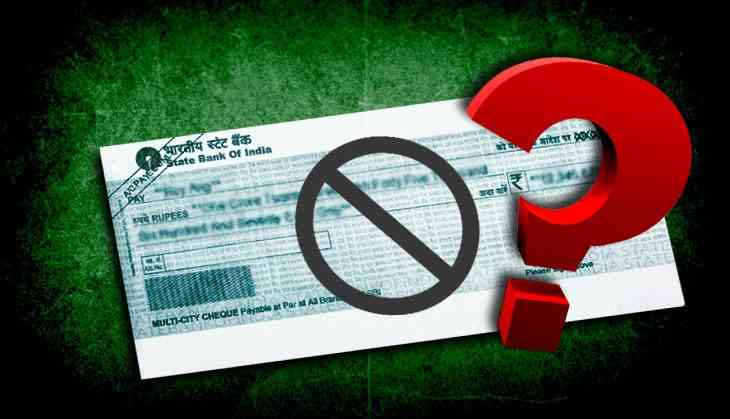Will the Modi govt target cheque books next? Here's why it's a bad idea

A year after demonetisation, is the Narendra Modi government gearing up to disrupt the economy again? The latest idea doing the rounds is that the country's cheque clearing system may be discontinued.
The genesis of this was last week when Praveen Khandelwal, secretary general of Confederation of All India Traders (CAIT), told PTI that the government was planning such a move.
The veracity of this has not been confirmed, but given Khandelwal's closeness to the establishment, it becomes important to analyse the possible impact of such a move.
Good, bad or worse?
The Modi government has waged a war against paper money. While there is no doubt that a paperless economy (digital) would be more efficient than one based on paper, it only logical to expect the arrival of the former in advanced economies.
The Indian economy is still largely dominated by cash and cheques despite the drastic step of demonetisation that sucked out 86% of the currency (by value) in circulation, due to its digital backwardness and lack of fundamental trust in the digital transaction modes.
This is why despite demonetisation, the government has not been able kill cash and cheques.
An analysis done by Economic Times says that the “number and value of cashless transactions, understandably, shot up right after the note ban and remained high till about March 2017 and has since come down to pre-demonetisation levels”.
It further says: “In November 2016, a total of 523.23 million cashless transactions took place worth Rs 93.63 lakh crore and by March it was 682.45 million transactions amounting to Rs 150.24 lakh crore. Now, coming to cash, as on October 2017, the total cash in circulation Now, coming to cash, as on October 2017, the total cash in circulation was a whopping total Rs 1, 31, 81, 190 crore and the total currency with the public was Rs 15, 32, 850 crore. All of us together have put in money worth Rs 1,03, 65, 840 crore in time deposits with banks. And cashless forms just 5% of all the transactions in India.”
The cost of 'chequeless' economy
First of all, it is important to understand that cheques are not anonymous like cash. Anyone who issues or receives a cheque becomes part of the formal economy.
Therefore, transactions made through cheques do not harm the economy in the way cash does. In fact, there are a number of transactions that can be done only through cheques. Take, for example, a post-dated cheque that is issued to a number of parties. On the other hand, most electronic payments are ‘credit push’ in nature which necessitates the payer to have the requisite funds at the time of making the payment.
In the absence of chequebooks, it would be difficult for insurance agents to sell insurance policies to people who do not have instant funds to make payments at the time of purchase of the policy.
Similarly, lakhs of small retailers/wholesalers also accept post-dated-cheques from their customers to keep their transactions going without any halt. All these types of transactions are going to take a hit if the government decides to ban the system of cheque clearance in the country.
A study published by Reserve Bank of India in this regard indicates how smaller businesses are dependent on the cheque-clearing system.
According to that study, “the volume of cheques cleared through the MICR Cheque Processing Centres (CPCs) across the country during the first half year of the financial year 2012-2013 reveals that around 89% of the cheques cleared in these centres were below Rs.1 lakh under various categories.
So, if the government bans the use of cheques, it will, without a doubt, affect small businesses across the country. For now, let's hope the news is just a rumour.
First published: 21 November 2017, 19:22 IST
